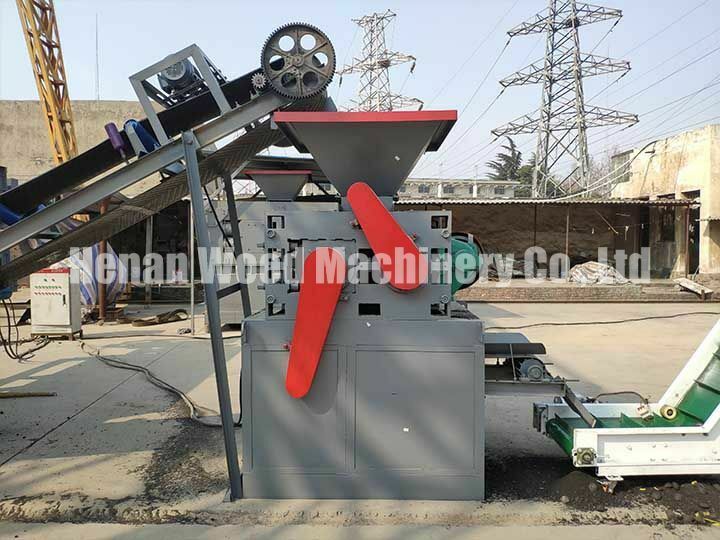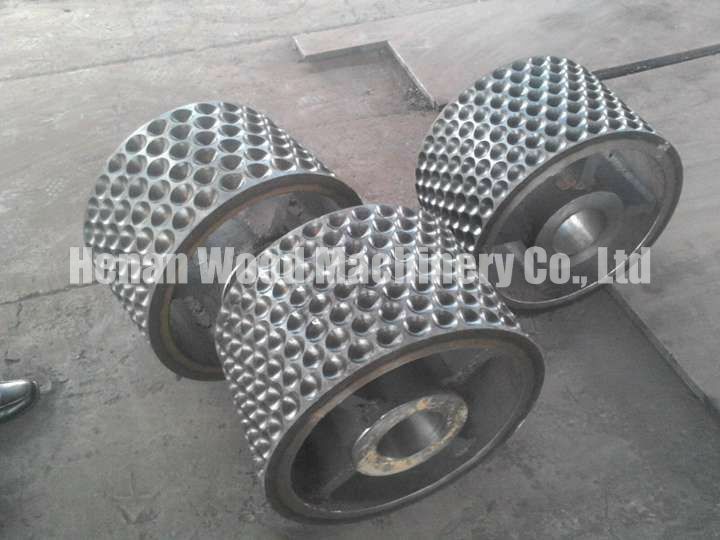What factors will affect the molding effect of charcoal balls?
Charcoal ball press machines are in great demand because of the wide application, our company has many successful cases of this charcoal ball making machine, shipped machines to many countries, such as Indonesia and Romania. However, sometimes customers ask us why the charcoal balls made by the machine are not regular. In order to solve the customer’s question. our engineers gave some factors that could affect the molding effect of charcoal balls.

Roller speed of charcoal ball machines
In order to improve the productivity of the briquetting machine, some factories set the speed of the two briquetting rollers very fast. But this is not right. Because the raw materials are squeezed by the rollers, the internal air between the loose raw materials will be gradually discharged. When the rollers rotate too fast, the surface of the pellets will be cracked because the gas between the raw materials is too late to be discharged, resulting in the pellets’ cracks. The strength is reduced, and it cannot even be formed into a ball.

Pressure between rollers
The ball press adopts a speed regulating device so that the speed of the ball can be adjusted at any time, the speed is stable, the forming rate is high, and the product particle size is uniform. Some factories want to increase the density and hardness of the product, and adjust the pressure between the two pressure rollers to be relatively large. But the quality of the charcoal pellets produced is very poor, why?
In fact, there is a limit to the pressure between the molecules of the material. When the pressure exceeds this limit, there will be slippage between the molecules of the material, resulting in the collapse of the material. At this time, a large number of hemispheres appear, and the rate of spherical formation is greatly reduced. It will reduce the strength of the pellet, making the pressed ball difficult to form.
Moisture of raw materials
Except for a few raw materials such as limestone, which use dry powder briquetting, most materials use wet briquetting. The moisture content of the raw material is one of the reasons that affect molding.
Excessive moisture: The change of moisture affects the particle size and quality of the green pellets. Usually, if the moisture content of the raw material is too high, the initial pelletization will be faster, but it is easy to cause the green pellets to bond and deform each other, and it is not easy to detach the pellets, resulting in the uneven particle size distribution of the green pellets. Poor strength and difficulty in drying.
Too low moisture: If the moisture content of the raw material is too low, the gap between the two hemispheres is likely to increase, resulting in poor bonding strength of the powder, too many hemispheres, and low or even impossible to form a ball. Therefore, the moisture content of the ball also affects the ball forming of the briquetting machine.
